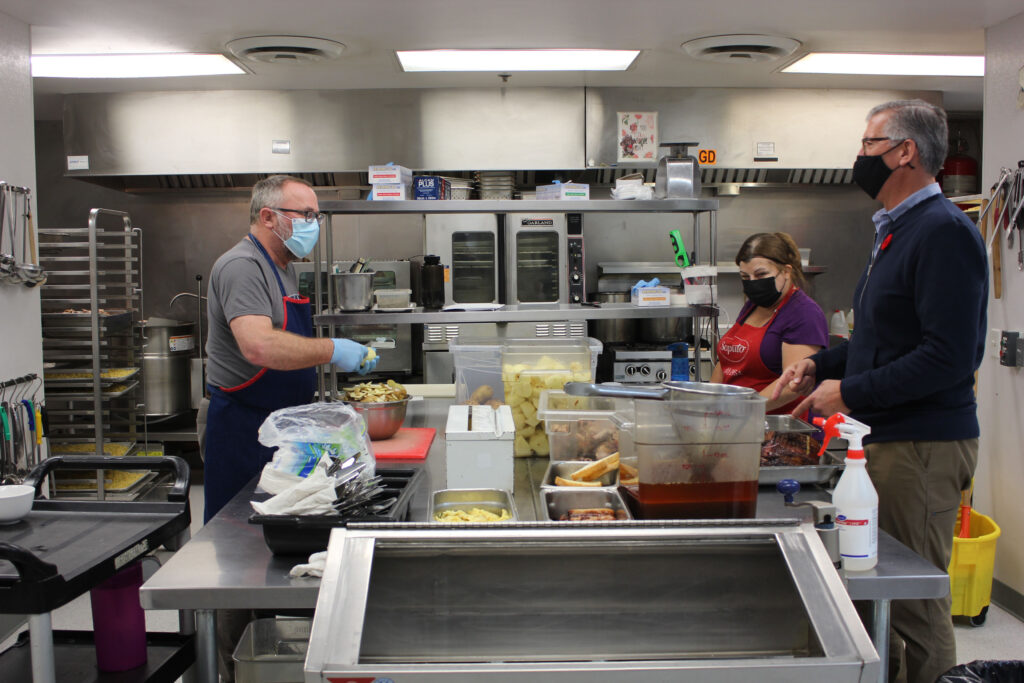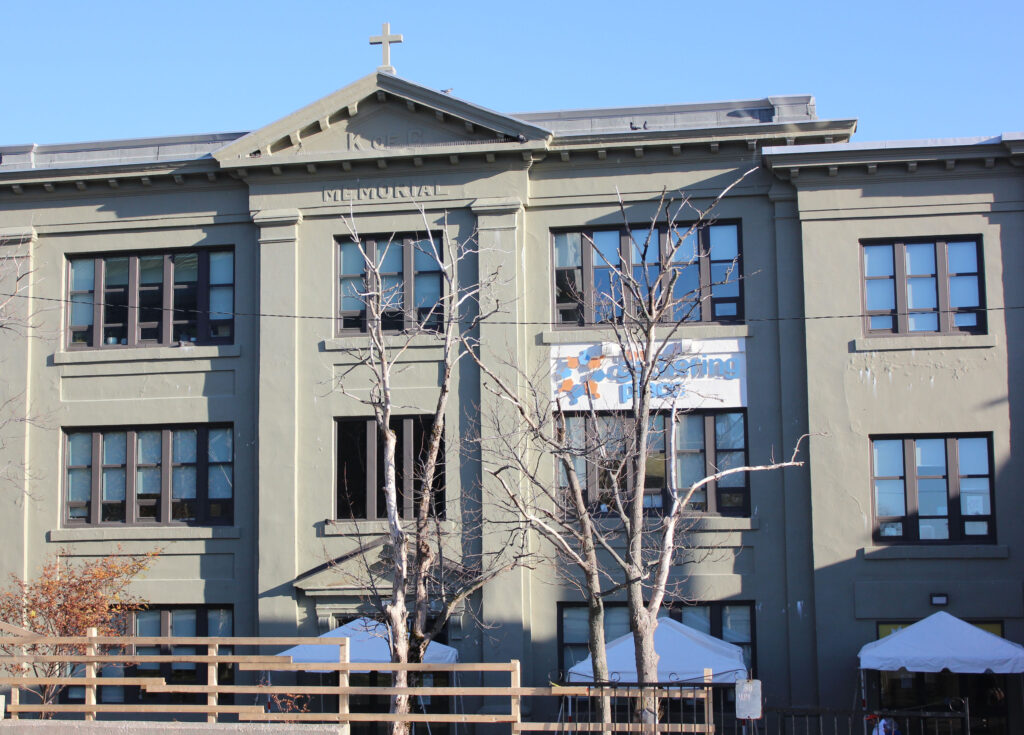Sherri Breen
Kicker

The increased cost of living has reached record levels in Newfoundland and Labrador. The fallout is particularly visible among those at risk of hunger and homelessness in the capital city.
The Gathering Place in downtown St. John’s serves an adult population considered “precariously housed,” meaning individuals have somewhere to sleep at night, but their housing arrangements are less than ideal.
Paul Davis, former premier of Newfoundland and Labrador and current executive director of the Gathering Place, said the organization is “perfectly positioned to provide supports and assistance to our most vulnerable who are seeking answers and solutions to problems.”
Visitors over the age of 26 come to the Gathering Place to avail of a clean, safe space that offers food, temporary shelter, access to social programs such mental health and addictions programs, a dental clinic and a social room.
In 2014, the Gathering Place had 400 registered guests. By 2019, that number grew to 900. Currently, the organization serves approximately 2,000 adults. Davis noted the increase in guests as part of a bigger trend in the economic downturn.
“When the economy, province and society goes through difficult times as presented by COVID, and then the economic challenges that come with it, . . . all those pressures are pushing down on those in the lower social economic circumstances,” Davis said.
Increased food costs
The Gathering Place is part of a community health centre and is committed to serving healthy and nutritious meals to its patrons. Its volunteers, kitchen staff and professional cooks serve up to 3,000 meals per week to hundreds of visitors each day.
According to Davis, increased demand and higher food costs mean the Gathering Place is spending 75 per cent more on food this year than it spent last year, a hike that has a become a struggle for the organization.
“We served 270 meals at Thanksgiving,” said Davis. “We are always looking for donations.”
Doug Pawson of End Homelessness St. John’s helps administer funds to community partners such as the Gathering Place, provides support to clients with rental and utility arrears, and facilitates housing matches between landlords and tenants in the Home Connect program.
Pawson noted that because food is a variable cost, inflation further squeezes the restricted budgets of low-wage earners and income support recipients.
“Food security concerns is where I think inflation hits the hardest for folks who are housed or precariously housed,” Pawson said.
While End Homelessness is not mandated to address food security concerns, it recognized the growing need for food assistance over the past few years and invested in Food First NL, the emergency food line, and 211 through United Way.
“Food security concerns is where I think inflation hits the hardest for folks who are housed or precariously housed,” asserts Pawson.
The state of emergency during the winter of 2020, followed by the pandemic, are some of the catalysts of the increased pressure on the economically vulnerable. It is not just food that is becoming unaffordable but also rent, utilities and other costs of living.
Pawson emphasized the importance of the CERB benefit implemented during the pandemic.
“. . . Having those benefits in place allowed people to stay safe, stay fed, and stay housed,” Pawson said.
Many individuals relying on government benefits faced significant delays in accessing additional emergency financial support. Pawson and others have been urging government to revisit how emergency provisions will be handled in the future, particularly for those considered precariously employed or underemployed.
The upcoming provincial Health Accord – a 10-year plan developed by a government appointed task force – will address social determinants of health that Pawson believes will help shape the direction of social policies including the poverty reduction strategy.
“Coming out of the pandemic, we are going to need to revisit our whole social safety net,” said Pawson.
Last fall, the Gathering Place received funding from a joint initiative between Newfoundland and Labrador Housing and End Homelessness to create a temporary shelter space. The beds are laid out in a communal sleeping arrangement and address the shortage of shelter space and supportive housing in the city.
“We had several days in September where we had to turn people away,” said Davis. He points out that while the Gathering Place is working to create a longer term solutions to social problems, it is grateful for the support of local businesses, volunteers and community partners during these uncertain times.





Be the first to comment